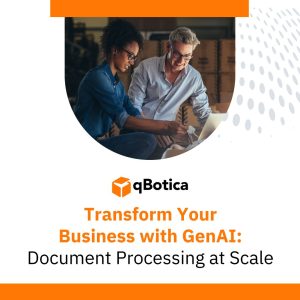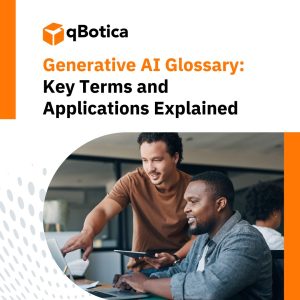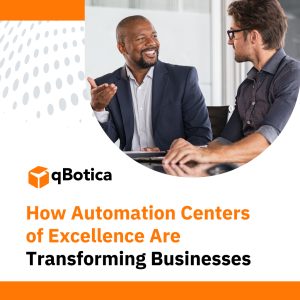Though it may sound like something from the realm of science fiction, Artificial Intelligence (AI) stands firm in our here and now — dramatically resetting job market dynamics. With AI diligently woven into the workplace tapestry across varied corporations worldwide, we’re seeing an interesting sea change within workforces at a universal level.
This article will delve deep into how AI is reshaping the job market and what could we expect shortly!
AI and Job Creation
The emergence of Artificial Intelligence (AI) and automation in the global employment sphere is more than just a coincidence; it’s a game-changer producing fresh job prospects and revamping entire sectors. As per insights from the World Economic Forum, approximately 75% of ventures are predicted to lean on AI – leading to a massive shake-up in the employment scene.
But this isn’t about just stepping up tech-wise; it spells out a major change in work market dynamics, with half of all organizations forecasting an uptick in job creation spurred by AI, while one-fourth are bracing for potential employment downsizing.
Sectors like education and farming are tipped to see some hefty total job boosts courtesy of AI. Taking education as an example – experts are predicting a growth of around 10%, translating into another whopping 3 million jobs, primarily falling under vocational teaching or higher education instruction facilities.
Additionally, AI’s influence extends well beyond just the tech-focused industries. Places like India are witnessing how blending AI with Environmental, Social, and Governance (ESG) benchmarks along with fresh-out-of-the-oven technologies could significantly rev up job creation. It underscores an increasing focus on fusing business practices that echo sound sustainability principles and social responsibility ethos – all fuelled by trailblazing digital advances and AI.
Challenges of AI in the Job Market
The fusion of Artificial Intelligence (AI) into the job sector is not without its share of hurdles:
- Human Job Loss – The application of AI in automating tasks can push human workers out, especially those involved in monotonous undertakings such as data input or assembly line duties. This shift could stoke unemployment rates and widen the gap between income groups.
- Skills Incompatibility – AI tends to churn out job positions warranting skills dissimilar from those rendered redundant. It’s not unusual for workers to discover that their existing skill set falls short, compelling them to retrain and augment their abilities to mesh with new roles.
- Morality Matters – The ethical ramifications arising from decisions made by AI are noteworthy questions – confusion around algorithm bias and opaque processes, for instance. These issues might usher discriminatory results, requiring a firmer grip on ethical conduct guidelines concerning AI use.
- Bias Proliferated – Training an AI using skewed data might cause it to amplify prevailing biased behaviors and disparity – leading down a path rife with unfair recruitment techniques, promotional biases, and undesirable workplace atmospheres.
- Economic and Social Hurdles – Employee uprooting, followed by a glaring skills mismatch, can culminate in wider economic and societal hurdles rocking the labor market balance.
AI’s Influence on Specialized Jobs
Artificial Intelligence (AI) is reshaping specialized occupations in several notable ways:
Enhancement Rather Than Replacement
You’ll notice AI being perceived less as a usurper and more as a booster of professional abilities in sectors like healthcare, especially areas such as radiology. For instance, AI gives a helping hand to radiologists by heightening diagnostic precision and speed when it comes to pancreatic cancer imaging but doesn’t push them out of their jobs.
Impact on High-Skill Jobs
The shake-up AI brings about affects high-grade positions complexly. While those holding low-skill roles might find themselves looking at receding opportunities due to AI’s influence, the forecast for higher-skilled jobholders appears promising with greater growth prospects. That’s primarily due to these positions requiring capabilities like critical reasoning, innovative problem-solving, and creativity that defy complete emulation by AI.
Necessity for Continuous Learning
Courtesy of swift advances in the domain of AI technologies, professionals rooted in specialized disciplines have got to keep learning around the clock. Staying clued into cutting-edge AI applications and tools germane to their line of work becomes decisive in enduring relevance within constantly shifting landscapes brought upon by rapid tech innovations.
Cost and Development Concerns
Deploying AI in niche occupations doesn’t come easy – it has its fair share of hurdles. The hefty price tag that accompanies the evolution and upkeeping of AI tech is significant. Plus, fine-tuning these AI applications specifically for expert domains demands an extra cash injection towards machine learning and engineering.
The Future of Work with AI
The intersection of AI and the future work scene shows an intriguing mix of puzzles yet, tremendous room for progress. The transformative influence of AI demands flexibility and relentless learning from the workforce. We’re seeing newer roles crop up, especially around developing AI tech itself and dissecting data–all needing a fresh skillset that jives with this technological wave fronting us. A cool by-product? As more mundane tasks get automated under the watchful eye of AI – humans can zone into intricate, creativity-demanding aspects of their job.
But to truly understand all that’s great about embracing AI in workspaces – retooling initiatives can’t be put off any longer! Indeed, we need teams ready for the ever-mutating job terrain where AI plays up human talent instead of being viewed as its rival. The delivery plate would also serve ethical guidelines on how ‘right’ should look when it comes to using this cutting-edge tech; ensuring a sense of fair play rules across job markets but blended seamlessly with crystal-clear transparency.
Conclusion
The journey of merging Artificial Intelligence (AI) into the employment scene is a revolutionary one – laden with both trials and triumphs. As we sail through this arena, the spotlight should be on cultivating flexibility; lifelong learning; and high-standard AI ethics to bring about a harmonious fusion of human abilities and tech progress.
Yes, the work horizons interlinked with AI spell out innovation plus expansion but also put forth a call for forward-thinking actions to link skills chasms and soften job displacements. For those looking to stay ahead in this evolving landscape, exploring how qBotica can assist in navigating and capitalizing on these AI-driven changes could be a strategic move towards future-proofing careers and businesses.




